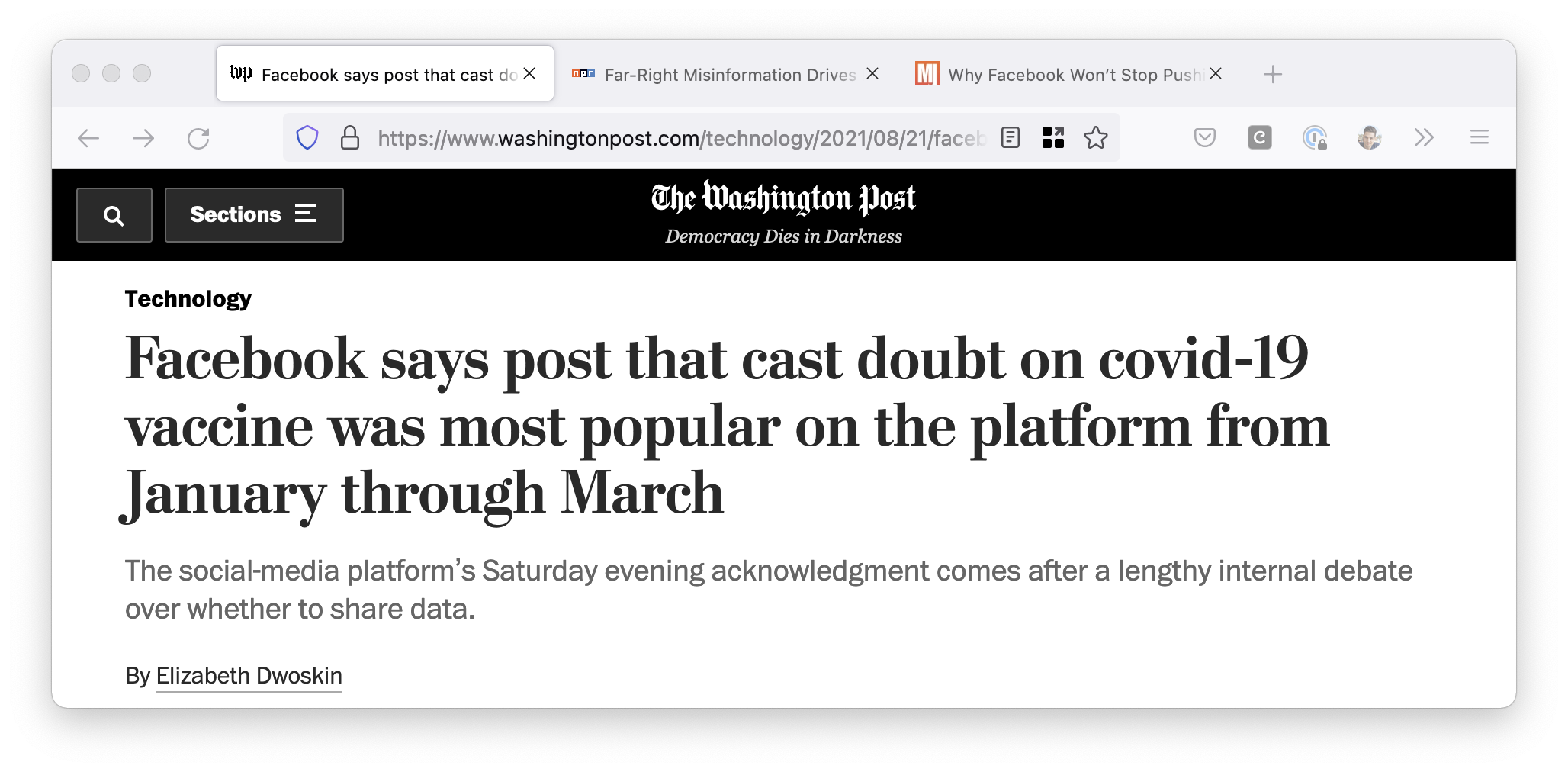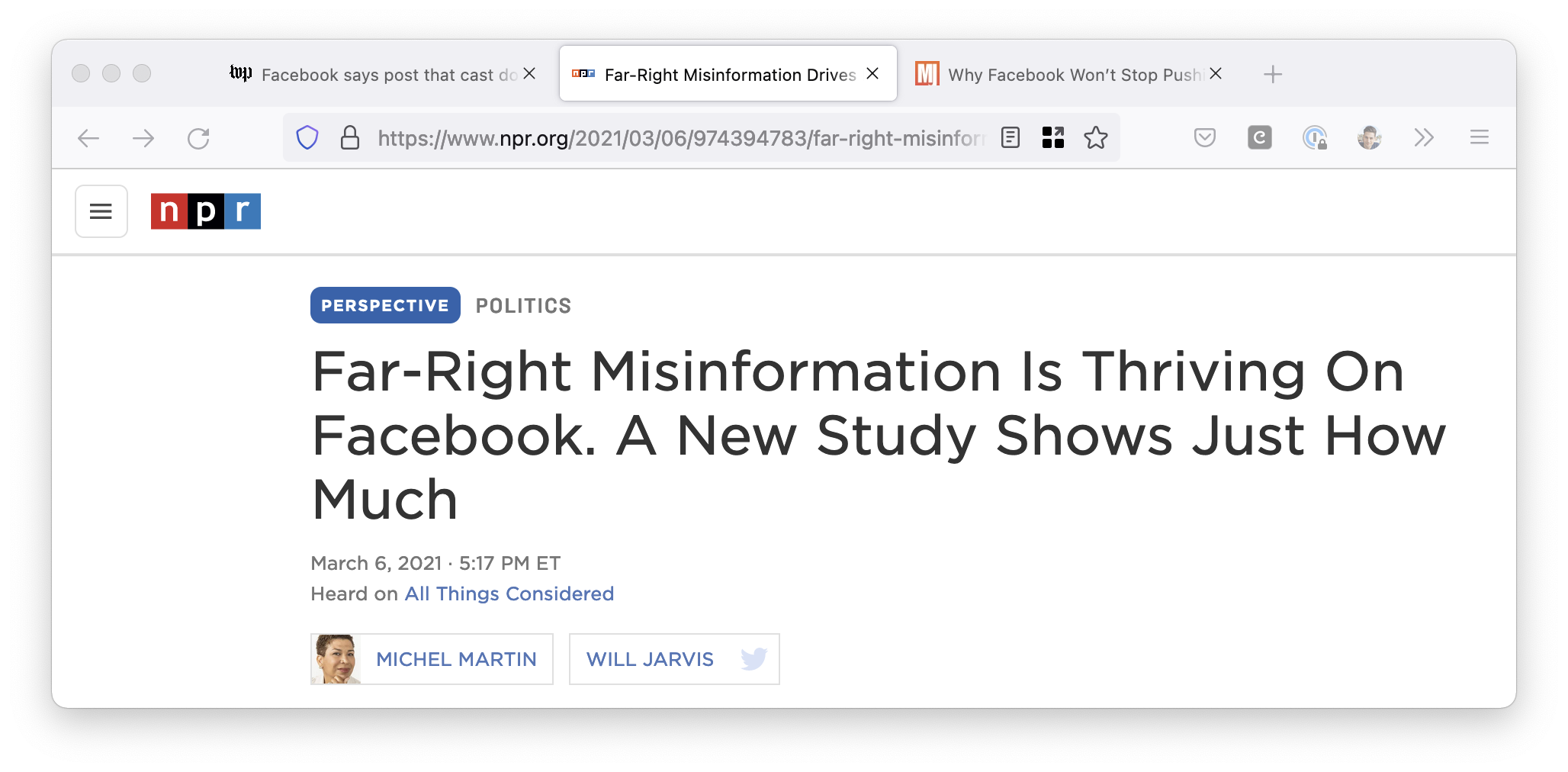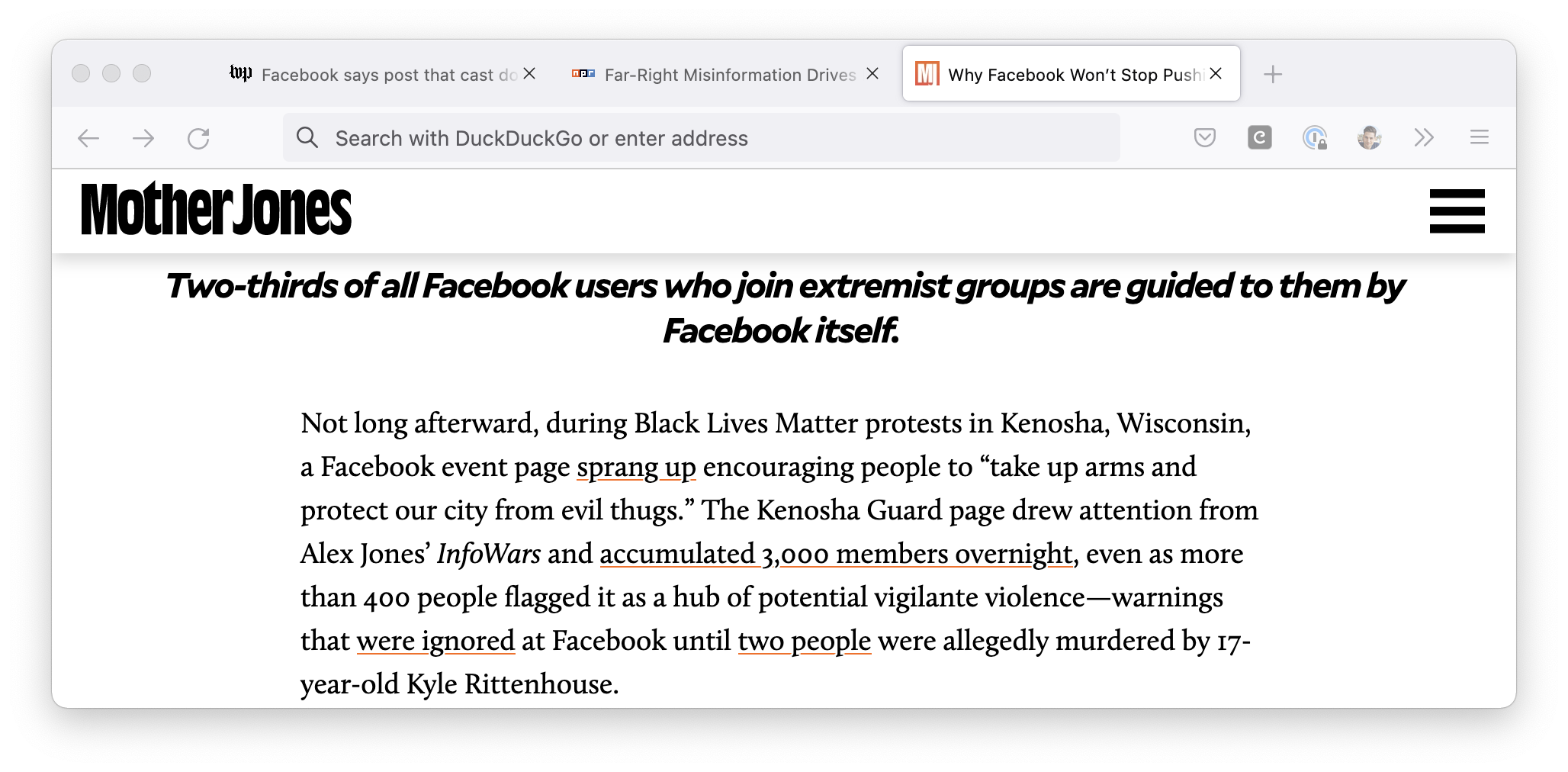A year without Facebook
I deleted my Facebook account exactly one year ago.
In retrospect, it was a good decision for my mental health. My other reason for wanting to delete Facebook a year ago has been even further justified: Facebook continued to harm society as a whole more than it helped.
Since I logged off Facebook, there has been:
- a US presidential election
- an insurrection against the US government
- a COVID-19 vaccination campaign
Each of these events was made worse by Facebook’s existence. Time and again, the behemoth failed to protect society from harm enabled by its products. Lies spread faster and further than facts on Facebook. Widespread lies then dominated the discourse by requiring defenders of objective reality to challenge the lies.
My time—and that of society—is better spent being calm, not outraged.1 My compassion is better applied to efforts other than fact-checking people who do not care about facts. So too is yours.
I feared losing connections with friends. I replaced the Facebook newsfeed with intentional outreach once a week to someone I had not communicated with in awhile. These emails or half hour conversations filled my heart more than any number of likes ever could. The past year reminded me that true friendships pick back up right where they left off.
I feared missing out on events. However, no one planned any events in the last year due to the COVID-19 pandemic restrictions. This still might be a valid concern once the pandemic ends, but my hope is that people who value my presence will make an effort to send me a message.
I feared losing memories. Facebook’s account export was limited to content I created. I could not save friends’ comments on my posts or photos in which they tagged me. Despite the half gigabyte of data I could export, I only looked at the archive once in the last year. If I lost the files tomorrow, I would not be sad. The present and the future matter much more to me than the past. My memory is enough. Those things that I have forgotten do not feel like such a loss.
I feared being forgotten. Facebook’s memorialization feature is one of its best features. When someone dies, a Facebook profile can be “memorialized.” I would visit the memorialized profiles of lost friends periodically when they crossed my mind; it almost resembled visiting a digital cemetery. One day I will die and I don’t yet have a plan for how my existence should be preserved. Facebook remains the easiest way to establish a digital legacy. I hope I still have many more years to figure out this concern.
Four people followed me in deleting their Facebook accounts. Not one of them have expressed regret to me. My only regret is not doing it sooner.
I am still on Instagram and I am aware it is owned by Facebook. Unlike Facebook’s main “blue” app, Instagram still brings me joy because of the creativity of the people I follow. I try to limit how much Facebook can profit from my attention by not clicking on ads and by using iOS’s screen time feature to limit my usage to fifteen 15-minutes a day. I consider this similar to eating vegan once a week to reduce one’s carbon footprint from meat consumption. I eventually reduced my meat consumption to zero and I likely will delete Instagram eventually too.
Whether or not you join me in deleting Facebook, I hope you keep in touch.
- While Facebook and YouTube contribute great harm to society, they usually are amplifiers, not the source. I appreciated this analysis: Mad as Hell: What is fueling America's political rage? — Mother Jones ↩︎


